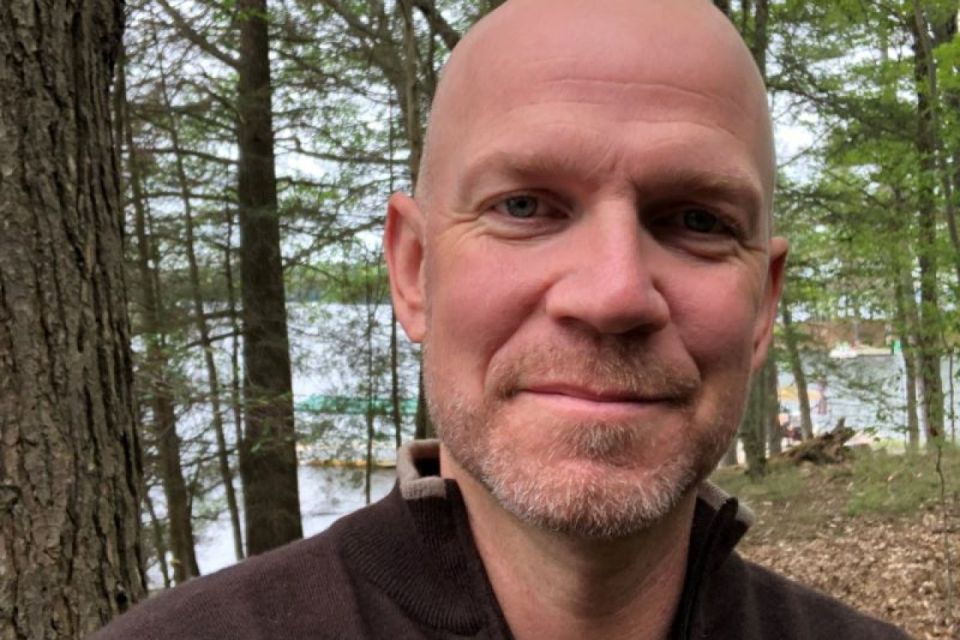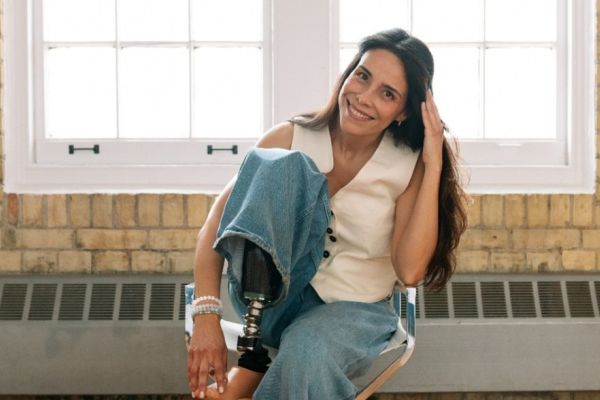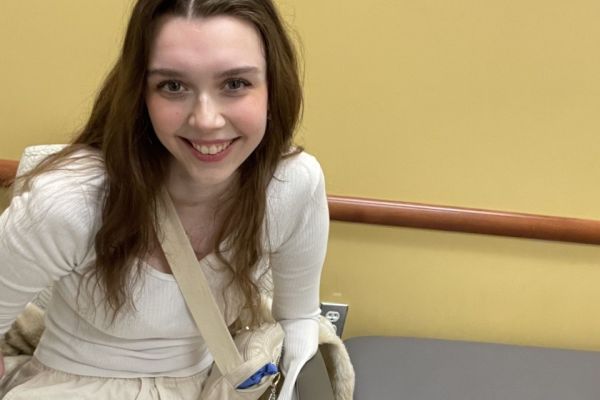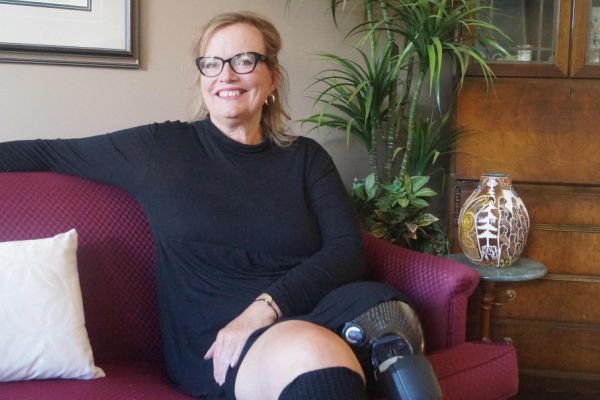Prosthetist Alan Rigby Makes Client Care His Business
Author: Thrive Staff Writer

Alan Rigby is a certified orthotist and prosthetist, a community leader, entrepreneur and co-owner of the St. Catharines-based PBO Group. It’s a business built on “best in class care."
thrive: Let’s start by getting straight to business. As a prosthetic company PBO is different not just in Ontario but across Canada for its business model… that being, adding existing clinics to expand your business and assets. What can you tell us about that plan?
RIGBY: It’s important for me to say that the reason I got into this industry is to provide care. It was not necessarily about making arms and legs. It was to care for people. With larger organizations come pros and cons of course. The pros often are on the economic side. The cons are almost always on the care side. For PBO, it’s less about imposing a model than it is about absorbing the pros and cons from different entities and merging them together so we’re all better together. For example, when Niagara Prosthetics and Kawartha Prosthetics came together we brought the best out of both entities and hopefully rid ourselves of some of the lesser things about those businesses. That’s our model. Each facility does what it is best at, and we share those bests within our group.
RIGBY: It’s important for me to say that the reason I got into this industry is to provide care. It was not necessarily about making arms and legs. It was to care for people. With larger organizations come pros and cons of course. The pros often are on the economic side. The cons are almost always on the care side. For PBO, it’s less about imposing a model than it is about absorbing the pros and cons from different entities and merging them together so we’re all better together. For example, when Niagara Prosthetics and Kawartha Prosthetics came together we brought the best out of both entities and hopefully rid ourselves of some of the lesser things about those businesses. That’s our model. Each facility does what it is best at, and we share those bests within our group.
"Canadians need to understand that our healthcare is not free. It’s paid for on our behalf. In fact, it’s quite expensive but paid for by our tax dollars and the system."
thrive: How does Canada’s healthcare system impact your business model?
RIGBY: Again, PBO is not as much about growth as it is about sharing competencies and capacity among us. Remember, we are Canadian. And we’re talking about healthcare. The Canadian approach to healthcare, which I happen to like, needs a subtle change in perception to define it a little bit better. Canadians need to understand that our healthcare is not free. It’s paid for on our behalf. In fact, it’s quite expensive but paid for by our tax dollars and the system. So, efficiencies are very important to the business side of what we do.
thrive: Back to the business of prosthetics. From a cost perspective to the prosthetic user, it’s not like shopping for a new car, lot to lot, looking for the best price. Billing is dictated by the Assistive Devices Program in Ontario for example. How does this affect a private prosthetic firm?
RIGBY: For us, the economic side of it propels our mindset for continuous improvement. That mindset creates a frame of mind or corporate culture of always trying to be better on the clinical side, a drive for better care. The truth of the funding model for prosthetics is such that there is often a very significant cost to the client themselves. If we can be as efficient as possible, hopefully, we can stretch the funding dollars that we do have, which will allow us to keep the cost to the client as low as possible for as long as possible.
thrive: Where can those savings be found?
RIGBY: It gives the care side more attention, more time to spend with clients.
thrive: The PBO website stresses “best in class care.” Is that a measure of customer satisfaction among your clients?
RIGBY: No. I don’t think customer satisfaction accurately defines it. Customers may never be completely satisfied, and probably shouldn’t be. Some level of dissatisfaction is going to continue to drive better care. It’s not a binary scenario – good or bad. It’s a continuum. It’s different for each person. It’s a good place to be as an organization in asking ourselves ‘how we do better when we’re achieving client satisfaction.’
RIGBY: Again, PBO is not as much about growth as it is about sharing competencies and capacity among us. Remember, we are Canadian. And we’re talking about healthcare. The Canadian approach to healthcare, which I happen to like, needs a subtle change in perception to define it a little bit better. Canadians need to understand that our healthcare is not free. It’s paid for on our behalf. In fact, it’s quite expensive but paid for by our tax dollars and the system. So, efficiencies are very important to the business side of what we do.
thrive: Back to the business of prosthetics. From a cost perspective to the prosthetic user, it’s not like shopping for a new car, lot to lot, looking for the best price. Billing is dictated by the Assistive Devices Program in Ontario for example. How does this affect a private prosthetic firm?
RIGBY: For us, the economic side of it propels our mindset for continuous improvement. That mindset creates a frame of mind or corporate culture of always trying to be better on the clinical side, a drive for better care. The truth of the funding model for prosthetics is such that there is often a very significant cost to the client themselves. If we can be as efficient as possible, hopefully, we can stretch the funding dollars that we do have, which will allow us to keep the cost to the client as low as possible for as long as possible.
thrive: Where can those savings be found?
RIGBY: It gives the care side more attention, more time to spend with clients.
thrive: The PBO website stresses “best in class care.” Is that a measure of customer satisfaction among your clients?
RIGBY: No. I don’t think customer satisfaction accurately defines it. Customers may never be completely satisfied, and probably shouldn’t be. Some level of dissatisfaction is going to continue to drive better care. It’s not a binary scenario – good or bad. It’s a continuum. It’s different for each person. It’s a good place to be as an organization in asking ourselves ‘how we do better when we’re achieving client satisfaction.’
"Our responsibility is to uncover the individual needs and wants of our clients. And not just the physical needs… those are often the most obvious and straightforward. There are social, psychological, economic, recreational and lifestyle needs that overlay their physical ones."
thrive: For me, your profession is a fascinating one in that you have to wear so many hats with respect to the breadth of needs of your clients. How do you manage that responsibility?
RIGBY: Admittedly, on days when things are tough we lament that the healthcare system is so siloed. And in truth, prosthetists are ill-equipped to deal with a lot of these issues. But we have to do it. When these issues are presented to us, although I’m trying to do very technical work, I quickly become a social worker or therapist. Not necessarily because we’re good at it or should be, but because of the necessity of it.
thrive: That line. Where is it? With something very sensitive, what do you do?
RIGBY: We remind the client that we are not primary care providers. I can’t make a referral to a specialist. More often than not, it’s a recommendation to go back to their primary care provider, and sometimes right away. If we are really worried, we can make a call to the physiatrist on the amputee care team. Or reaching out to a family member but stopping short of breaching confidentiality.
thrive: From a practitioner standpoint was there an a-ha moment for you in the industry?
RIGBY: There’s always a soft spot for the person who walks on the first device we make... the look on their face, or the look on the partner’s face!
thrive: PBO is a joint venture of sorts… a partnership of you and your wife Jennifer correct?
RIGBY: Absolutely. I love that I do this together with my wife. The PBO journey is a 100 percent 50-50 partnership. She’s remarkable in so many ways but probably her greatest asset is her people skills. She really understands people. What I’ve learned from her is how to care for our colleagues too. We pride ourselves on how long staff have been with us.
thrive: Flipping the script, what frustrates or discourages you as a practitioner?
RIGBY: The limitation in ancillary services that should be part of the care team: social, psychological, occupational therapy, physiotherapy. Obviously, economics. It would be nice to exist in a world where we weren’t limited by economics and could simply choose the best approach for providing care period, but that’s not realistic. We do have to live within an economic framework. It’s confusing for people when other aspects of healthcare are paid for, but in this discipline there are fees to the end-user.
thrive: I’m a big proponent of taking some responsibility for my prosthetic needs as part of the care team. What are your expectations for your clients or patients?
RIGBY: Dead honesty, for sure. Don’t pretend for you or pretend for me. You’re not going to hurt my feelings. I can only fix something if I know there’s a problem. Tell us who you are, what you need, and what you want. More data is better. And self advocacy is important. Or have a partner or family member advocate for you. The system is complicated. Educate yourself. Those are the expectations. The hope is that our clients are inquisitive. It’s an absolute joy to work with someone who is inquisitive about their care. “What if we tried this instead of that?” “How could it be better?” “How could it be worse?” Even a failure is a learning opportunity for both the client and the prosthetist. Exploring can be fun and is where growth comes from.
thrive: What do you suggest for someone who may not be a natural advocator for themselves?
RIGBY: Journaling. It’s a great tool. Write it down. Or record [audio] it. Send me an email or show me your journal. It’s a good way of communicating for those who may not be able to articulate their concerns.
thrive: If you were an amputee, what would you foresee as being your biggest challenge?
RIGBY: A younger me would have struggled with performance. Sports helped define who I was as a young person. I would have needed to be able to pivot into something that would fulfill that definition of who I thought of myself being at the time. Knowing myself, through young adulthood it would have been body image that would have been a challenge for me. And then it would have moved into purpose for me now. I would ask myself ‘how do I do something with this’ not in spite of, but because of. ‘How do I use this to be better.’
RIGBY: Admittedly, on days when things are tough we lament that the healthcare system is so siloed. And in truth, prosthetists are ill-equipped to deal with a lot of these issues. But we have to do it. When these issues are presented to us, although I’m trying to do very technical work, I quickly become a social worker or therapist. Not necessarily because we’re good at it or should be, but because of the necessity of it.
thrive: That line. Where is it? With something very sensitive, what do you do?
RIGBY: We remind the client that we are not primary care providers. I can’t make a referral to a specialist. More often than not, it’s a recommendation to go back to their primary care provider, and sometimes right away. If we are really worried, we can make a call to the physiatrist on the amputee care team. Or reaching out to a family member but stopping short of breaching confidentiality.
thrive: From a practitioner standpoint was there an a-ha moment for you in the industry?
RIGBY: There’s always a soft spot for the person who walks on the first device we make... the look on their face, or the look on the partner’s face!
thrive: PBO is a joint venture of sorts… a partnership of you and your wife Jennifer correct?
RIGBY: Absolutely. I love that I do this together with my wife. The PBO journey is a 100 percent 50-50 partnership. She’s remarkable in so many ways but probably her greatest asset is her people skills. She really understands people. What I’ve learned from her is how to care for our colleagues too. We pride ourselves on how long staff have been with us.
thrive: Flipping the script, what frustrates or discourages you as a practitioner?
RIGBY: The limitation in ancillary services that should be part of the care team: social, psychological, occupational therapy, physiotherapy. Obviously, economics. It would be nice to exist in a world where we weren’t limited by economics and could simply choose the best approach for providing care period, but that’s not realistic. We do have to live within an economic framework. It’s confusing for people when other aspects of healthcare are paid for, but in this discipline there are fees to the end-user.
thrive: I’m a big proponent of taking some responsibility for my prosthetic needs as part of the care team. What are your expectations for your clients or patients?
RIGBY: Dead honesty, for sure. Don’t pretend for you or pretend for me. You’re not going to hurt my feelings. I can only fix something if I know there’s a problem. Tell us who you are, what you need, and what you want. More data is better. And self advocacy is important. Or have a partner or family member advocate for you. The system is complicated. Educate yourself. Those are the expectations. The hope is that our clients are inquisitive. It’s an absolute joy to work with someone who is inquisitive about their care. “What if we tried this instead of that?” “How could it be better?” “How could it be worse?” Even a failure is a learning opportunity for both the client and the prosthetist. Exploring can be fun and is where growth comes from.
thrive: What do you suggest for someone who may not be a natural advocator for themselves?
RIGBY: Journaling. It’s a great tool. Write it down. Or record [audio] it. Send me an email or show me your journal. It’s a good way of communicating for those who may not be able to articulate their concerns.
thrive: If you were an amputee, what would you foresee as being your biggest challenge?
RIGBY: A younger me would have struggled with performance. Sports helped define who I was as a young person. I would have needed to be able to pivot into something that would fulfill that definition of who I thought of myself being at the time. Knowing myself, through young adulthood it would have been body image that would have been a challenge for me. And then it would have moved into purpose for me now. I would ask myself ‘how do I do something with this’ not in spite of, but because of. ‘How do I use this to be better.’











 How to resolve AdBlock issue?
How to resolve AdBlock issue?